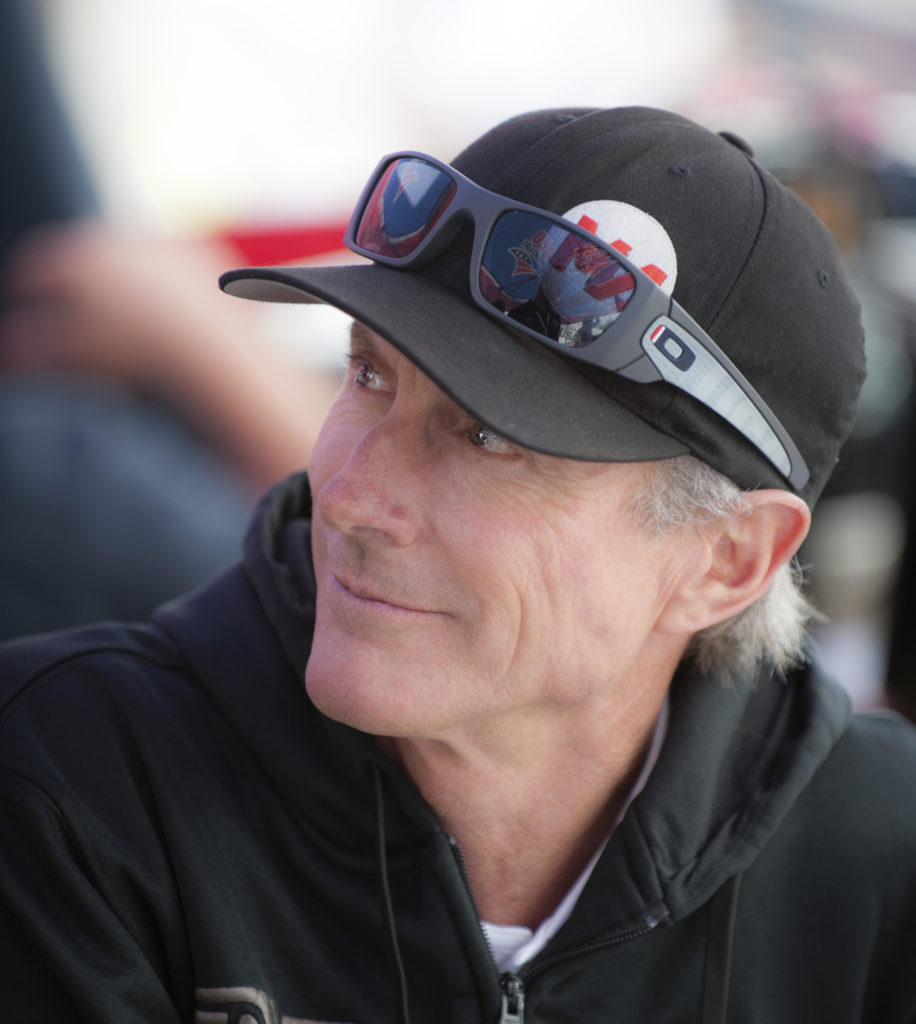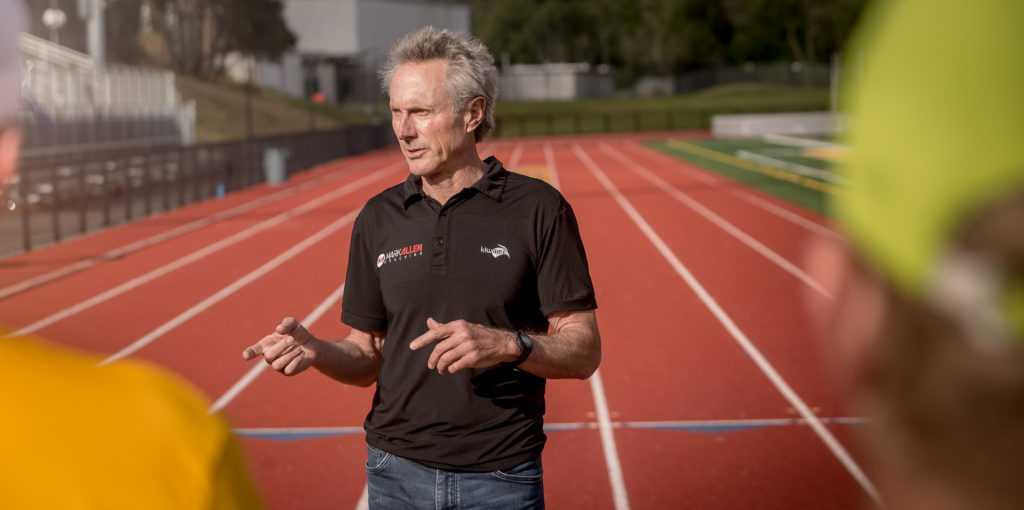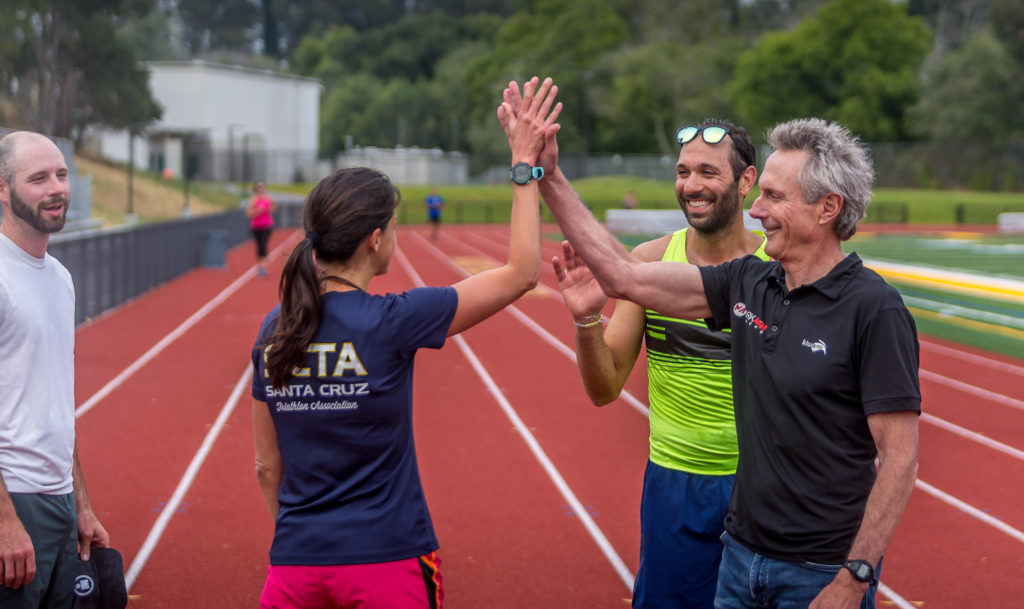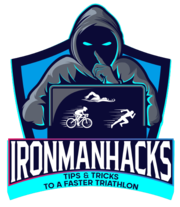Mark, I’ve really admired your Kona story for the win in 1989, as the underdog, who had been working for years for that spot. And then you went on to win it for five more years. What do you think it was that finally pushed you to the top spot on the podium for so long?

There were a number of things. One, ironically, was having all the first six Ironman races where I didn’t win, where I could lead but fall apart at some point in the marathon. Those were very tough races to just keep going, to go from leading to getting passed.
But those were also the places where the richest lessons came for me. I really learned how to keep giving everything I had even if my dream seemed completely impossible to achieve on that day.
And that simple, but painfully learned lesson then helped me in the Ironman Championships which I did win because there were always points where I didn’t feel good or even thought winning was out of the question. But knowing how to give everything even in the face of that would then eventually turn the tide and I did go on to win.
A second thing was learning how to feel at home on the Big Island of Hawaii. It is a very intense place with a unique and strong energy or power about it that can be very intimidating if you do not just embrace it and work with it.
I tried to avoid it in the first six Ironmans I did there. But you cannot avoid it! The more you fight the feel of the island the harder it pushes back on you. But when you just embrace that intensity and surrender to how it will inevitably shape your race, then the whole experience becomes a wondrous hugely impactful journey.
I started studying shamanism right about the time of my 1989 race with Brant Secunda who teaches a shamanic tradition that comes from the Huichol people in Central Mexico. One of the main teachings and goals in their lives is to learn how to embrace the natural world, which fits right in with what was missing for me in Kona.
Hawaii is the natural world at its peak. It’s hot, windy, desolate and unforgiving. It’s also beautiful in its rawness, its newness and its innocent in the sense that it is just bursting with energy and an undeniable yet unmeasurable power.
Learning to embrace the positives of those forces transformed my racing hell into a racing paradise that I could feel myself just flourishing in during those years that I won.
You have been called “The Greatest Endurance Athlete of All Time.” Do you still race or compete at all? Would you ever want to race in Kona again just for fun?
I don’t compete anymore. My final Ironman was in 1995 and my final season racing any distance was in 1996. I felt like I had covered every corner of competition and learned all I could from doing that. I knew it was time to transition into another side of sports and to continue on in my life.
There was another reason I have not competed since then. I had this deep, subtle feeling that I should not push my body like that anymore. I retired healthy, uninjured and not burned out.But I knew that if I kept trying to stay at a world class level that I might do something to my body that I would pay the price for throughout the rest of my life, and I didn’t want to do that. I was 38 years old when I retired and I hoped to be able to always exercise and stay fit and do the sports and training that I loved to do.
So since then I have not pushed my body in the same way. I do exercise everyday except for when I might be traveling. I surf most days as I live just two blocks from a great break in Santa Cruz, CA.I run and do some stationary bike work on Zwift for conditioning when the surf is not happening. And I do functional strength work fairly regularly. I am nowhere near as fast as I used to be, but I feel like I’ve hit on a rhythm that will sustain me for life!
I am now almost 62 years old and am still the exact same weight I was when I raced at 160 pounds.
Will I do Kona again? No. It’s not a race you just do for “fun.” It’s a big ask of your body to even complete the distance. But I am also in a unique place. Before my final Ironman in 1995 I went to a very sacred spot right along the ocean in Kona where I really felt like I could talk with the Island.
I left some offerings and asked to have one more great race there. The Island gave me that race and my final Ironman win. I know that I cannot now go back and say, “Well, I’ve reconsidered and I’d like some help to have another good one!”
I believe your background was originally in swimming. What advice would you have for weaker swimmers who want to get better?
This is a great question. First, some words of support for those who are coming into swimming later in life. It is never too late to learn how to swim well! Yes, it can take some time to get the hang of it. But for sure anyone regardless of their age can gain fluency in the water.
The best tip I can give is to get help. And there are two areas you will need help with. The first is your stroke mechanics. This is having someone work with you to develop your ability to move through the water with efficiency and ease. There are a lot of great stroke coaches, likely one in your area, that you can engage to help you do this.
The second part is then taking the learning you gain working with a stroke coach and translating that into actual fitness. And the best way I have found to have fun doing that is to join a Masters Swim team in your area.Look, swimming is pretty boring on your own. You go back and forth and see that line on the bottom of the pool and it never changes. But if you are part of a swim squad, you have a coach who will be giving you the workout, which is a plus. And you will have a community of people to be in the water with, and this is motivation times ten!
In your opinion, how do some of the mindsets and mentalities Ironman athletes have carry over to the professional world? What can we apply in the sport to our daily lives?
This is also a great question, but one that my answer may surprise you. First, unless you actually learn something from your experience doing an Ironman, there will be no carry-over into other parts of your life.
So what do I mean by that? Unless you actually take a mental journey back through the training you did and the races you have completed and sift through the experience to find the golden nuggets that if used later can completely transform your life, you will never be able to translate the Ironman experience into the life or business experience in a way that enhances either.
Without that reflection it’s like going down to the river and all you see is sediment and sand. But with even a small amount of reflection you can take that “sand” and put it into a pan and swirl it to get rid of the junk and reveal the gold that was hidden in it.
Yes, if you cross an Ironman finish line you have this feeling like “I really did something amazing” and you did! But the “how” and the “what really enabled me to do that” and the “what did I find within myself that I never knew I had” are going to be the tools that will be the secret sauce you can use over and over and over later in any area of your life…if you take the time to reflect, find then and stash them into your bag of life tricks.
So I should give you examples from my racing and my life. First, I learned that surrendering to how something is unfolding and then working with that is the only way to real success.
Trying to control the entire journey is impossible. Life, and racing, is so much bigger and complex than I have the ability to script that trying to have the journey from start to the fulfillment of a goal or dream is completely impossible.
But, if I just take the leap, jump off the cliff, commit to my dream then surrender to how it is unfolding, then the path to achieving it always feels possible even if it’s only a 1%-possible-feeling.
Another lesson I learned was that it’s important to stay completely engaged in the task no matter how difficult that may look in the moment because full engagement is what life asks of us.
It’ so easy to come up with excuses in the heat of a challenging moment or period or race that sound good as reasons that it’s not worth really giving all you can. But those are mirages. Full engagement is the only way the big things can come about.
And in tandem with that is the need for consistent, steady, patient work. Nothing big happens at the speed of Twitter. And we may have an ideal timeline of when we want that great result to happen, but again, life has its own plan.
I wanted to win Ironman on my third or fourth or fifth time. But life didn’t want me to. And now I can see that had I won early, I would not have had the deeper reservoir of knowledge I needed to win all six Ironman titles.
Then that leads to another lesson. Life will work out, so trust that it will. In the moment life can look like a disaster. But once you make it through the “disaster” and get to a point of peace or success or realization of your dreams, it always becomes apparent why the “disaster” had to happen. Again, for me, why couldn’t I win earlier in Kona? Because if I had I would not have won all six! Trust!

Could you please tell us a bit about Fit Soul Fit Body? How is the mental or spiritual state important in triathlon? Do you feel it’s overlooked, with most emphasis being placed on physical training?
This is likely one of the most overlooked aspects of sport, and of life really, the spiritual aspect. What I mean by spiritual is doing things for the right reasons. Do you want to win to crush someone else or do you want to win to have it be an expression of a passion inside of yourself?
Spiritual is using sport as a practice to perfect who you are as a person. Do you train everyday just to get a faster split on the race? Or do you train everyday as a way to put more flow and ease and awareness into every step you take during those runs?
A spiritual experience in sport takes place every single time you quiet your mind, when you stop that internal chatter, and you feel yourself being aware of everything all around you in every direction even behind you where you cannot “see.”When you are quiet as you swim, bike, run, ski or anything else where you are moving your body, it’s like a moving meditation. Answers to things you may not have even known you had a question about can come to you. Solutions that defy logic can be accessed.
Here’s one from my life. In the 1989 Ironman, Dave Scott and I had been racing each other side by side for close to eight hours. As we approached the final minutes of the marathon we both knew where a break had to happen. It was on a long uphill before you then descended into the town of Kona and went the final mile to the finish.
Both of us were ready. There was an aid station at the bottom of that hill. The logic said take one final glass of sport drink to have the calories needed to fuel the move and the last stretch to the finish line.
Dave reached the aid station a step ahead of me. He reached. I came in behind him to get a glass of sport drink. But just as I reached something inside just said “GO.” I pulled my hand back and started sprinting. This was so counter-intuitive because that late in the race you are running on fumes and every single calories counts.I did put time on him and that became the move that brought me victory. It was not a strategy I could have “thought” of. It came because even though it was the most intense part of the marathon, I was quiet.
You may be asking, how can I develop that quiet, that surrender, that connection to places in nature and a part of myself that is even open to finding a strength I never knew I had? I did this by, as I mentioned earlier, studying with Brant Secunda.
The Huichol tradition is ancient. It’s been around for thousands of years. It’s a complete system for bringing health to the individual, to a community and to the earth. It’s also rich in practices that because they help you to be more whole as a person and help you get rid of negative emotions and adopt more positive ones can also make you a great athlete.
I have studied with Brant now for almost 30 years. And through that he and I developed a program that we teach a number of places through the US and the world called Fit Soul, Fit Body. We integrate these two key themes that address all of who we are as people. We all have a body that needs to be taken care of and continually brought into good health.
We all have a soul or spirit or internal character that houses all the emotions that can help create an amazing life like love and joy and happiness. We co-teach these workshops and they are for everyone from someone who wants to lose weight to change patterns in their life that have held them back to someone hoping to be a world champion in sports!
How about The Art of Competition? What is the main angle of that book?
The core of this book is based around 90 quotes I wrote that are all about helping someone change sport into something that really is art. Each quote is paired with a photo from nature and put on a two page spread that is really dramatic.
Then there are also written chapters talking about fear and challenge and of course how I turned my racing into something that I would call art.
We are currently working to turn the printed version into an eBook. It looks amazing on an iPad or Kindle. Stay tuned! That will be coming in the next few months.
As a coach, what are a few things you would like every one of your athletes to know, follow, or be more conscious of?
I have been coaching triathletes since 1994, so 25 years now. There are a couple of things that I think are great pieces to keep in mind as you start your journey into triathlons or continue it if you have been doing it for a long time.
One is to always start your training from exactly where you are at. You never have to measure up to someone else’s standard, or even your past standard if it was higher than where you are at right now.
Secondly, have patience. As I have said earlier, changes in fitness that are real and deep and take place gradually over time. My coaching has always been anchored in helping people build their fitness in a way that is real and sustainable. Anyone can give an athlete a hard workout that will have a short-term big impact.
But it is very difficult to know how to coach athletes in a way that will enable them to sustain their improvements over the long-haul without burning them out or injuring them. Keeping athletes healthy has always been my number one goal.
Then the final piece is to really take a good look at your life and other commitments that are important to you outside of sports and then from there put a training plan in place that enables you to not only achieve your athletic dreams but also keep the rest of your life intact! And that is something I really like to help people do in my coaching.
What is the one mistake you see coached athletes making time and time again?
The number one mistake repeated since the beginning of time is to train too hard too often. Human beings are the best endurance athletes on the planet, even better than horses. We can go farther quicker than anything else.
But we are not hardwired to be the fastest. Yes, we can go fast to get out of the way of a life threatening situation. But our physiology is not set up to do that except on rare occasions.
It goes back to the flight or fight response that is high stress on a human being that is in our genetics from ancient times. When you do a track workout, your ancient genetics is actually reading that experience as there is a tiger trying to hunt you down for dinner and it’s high stress.Most coaches ignore this ancient hard-wiring and try to have their athletes push all the time, or at least too often. That results in a quick gain in fitness, but then results in injury, burnout, sickness and a million other things that neither the coach or the athlete wants.
My coaching is based on working with our ancient genetics instead of trying to override them!

What advice would you give to decent age-groupers who are struggling to make it to Kona?
Keep trying! Go for your dreams. Learn from the mistakes. See what you are gaining even if you don’t qualify.
And have fun. It’s a great lifestyle!
Finally, what Ironman hacks can you give our readers?
Simple hacks. Get all your race gear together 3-4 weeks out from the race. Don’t wait until race week to stress about it.
Get to the race early enough that there is no rush about anything you are doing. Months of training have gone into it, so give yourself those few extra days at the site.
Know the course. Each race has its quirks. Be ready for them.
Race morning go to the start with an extra water bottle, a bottle with sport drink and an energy bar. Top off the fuel tank as needed so that you are fuelled up for the start. This is especially important in races with wave starts where you may have to turn in your bike early but then don’t start until later.
In the race keep your mindset in the mode that is “this is just another strong training day like I have done so many times before” in the swim, the bike and until you get to about 10 miles or 15km from the finish of the marathon.
If you feel like you are “racing” at any point before that, back things down just enough so that you get into the strong training day mindset. Then at that point you can switch into the mindset of “Now I am racing.” This is the perfect way to pace the race.
Follow Mark online

Leave a Reply
You must be logged in to post a comment.